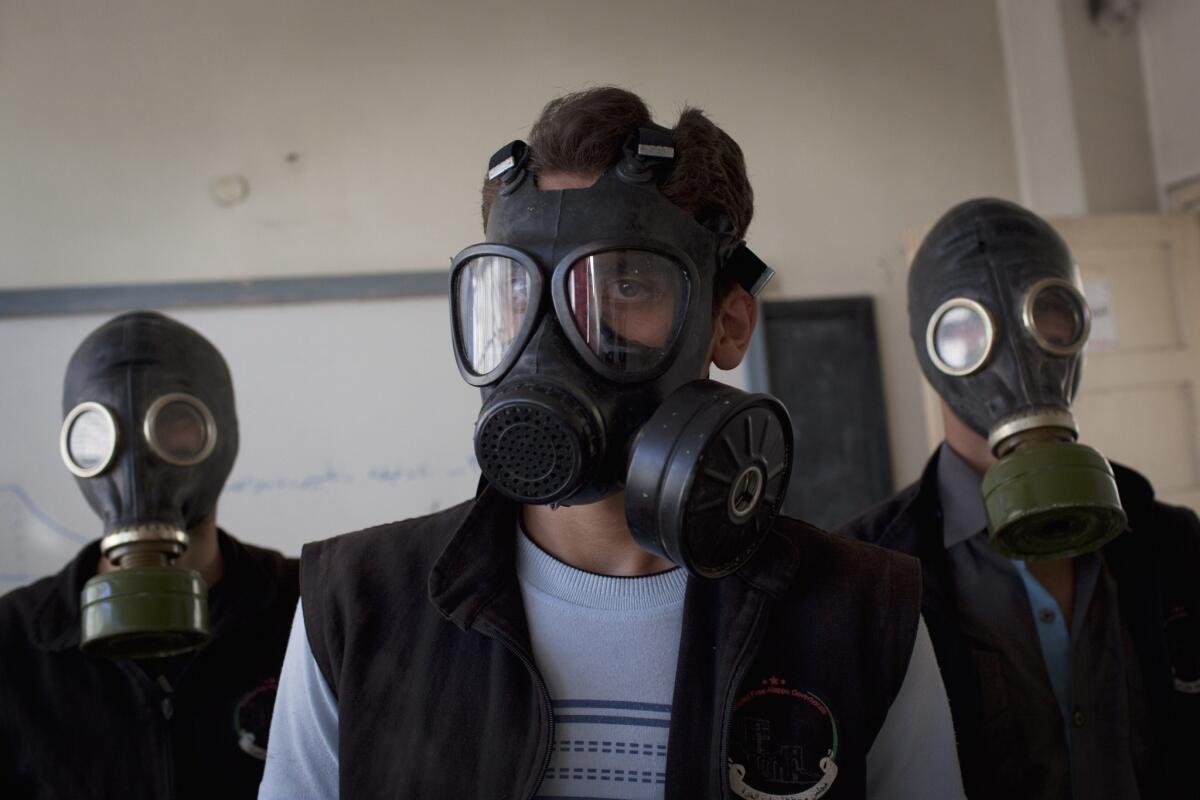U.N. finds ‘clear and convincing evidence’ of Syria chemical attack

- Share via
UNITED NATIONS -- U.N. inspectors say there is “clear and convincing evidence” that chemical weapons were used on a relatively large scale in an attack last month in Syria that killed hundreds of people.
A report from the inspectors says “the environmental, chemical and medical samples we have collected provide clear and convincing evidence that surface-to-surface rockets containing the nerve agent sarin were used ... in the Ghouta area of Damascus” on Aug. 21.
“The conclusion is that chemical weapons have been used in the ongoing conflict between the parties in the Syrian Arab Republic ... against civilians including children on a relatively large scale,” the inspectors said on the first page of their report to Secretary-General Ban Ki-Moon.
Ban is scheduled to present the report to the U.N. Security Council on Monday. The Associated Press saw the first page of the report.
The report is not intended to answer the question of who deployed the chemical weapons -- the government of President Bashar Assad or the rebels seeking to overthrow him -- but whether chemical weapons were used. The United States, France and various nongovernmental organizations have already said there was clear evidence of chemical use, but the U.N. inspectors presumably had much greater access to the site and to evidence.
Assad has not denied that chemical weapons were used, but his government has blamed the rebels, saying they wanted to attract support from Western governments by staging an attack and blaming it on the government. The United States has said it has convincing evidence that Assad’s government carried out the attack, in which it says 1,400 people died.
ALSO:
France’s Francois Hollande takes some credit for Syria deal
Bomb kills Pakistani army general near Afghanistan; Taliban blamed
Israel has 80 nuclear warheads, can make 115 to 190 more, report says
More to Read
Sign up for Essential California
The most important California stories and recommendations in your inbox every morning.
You may occasionally receive promotional content from the Los Angeles Times.










